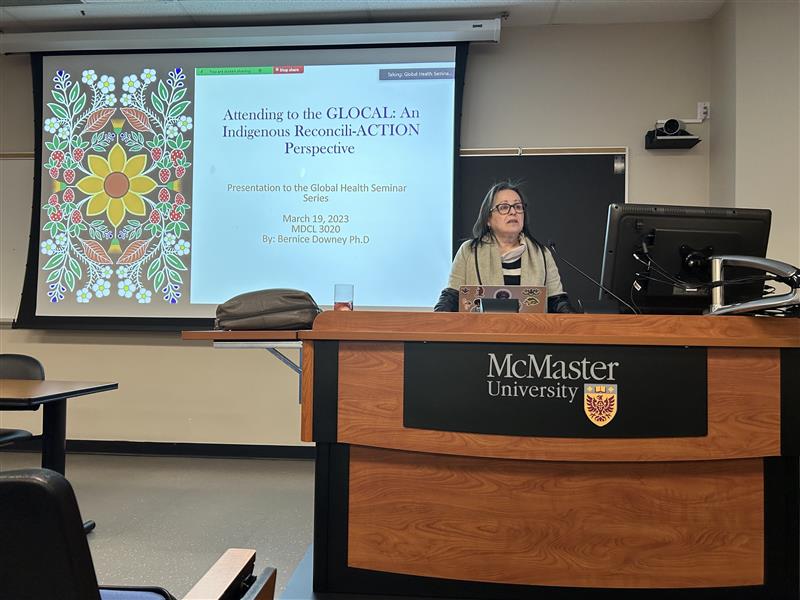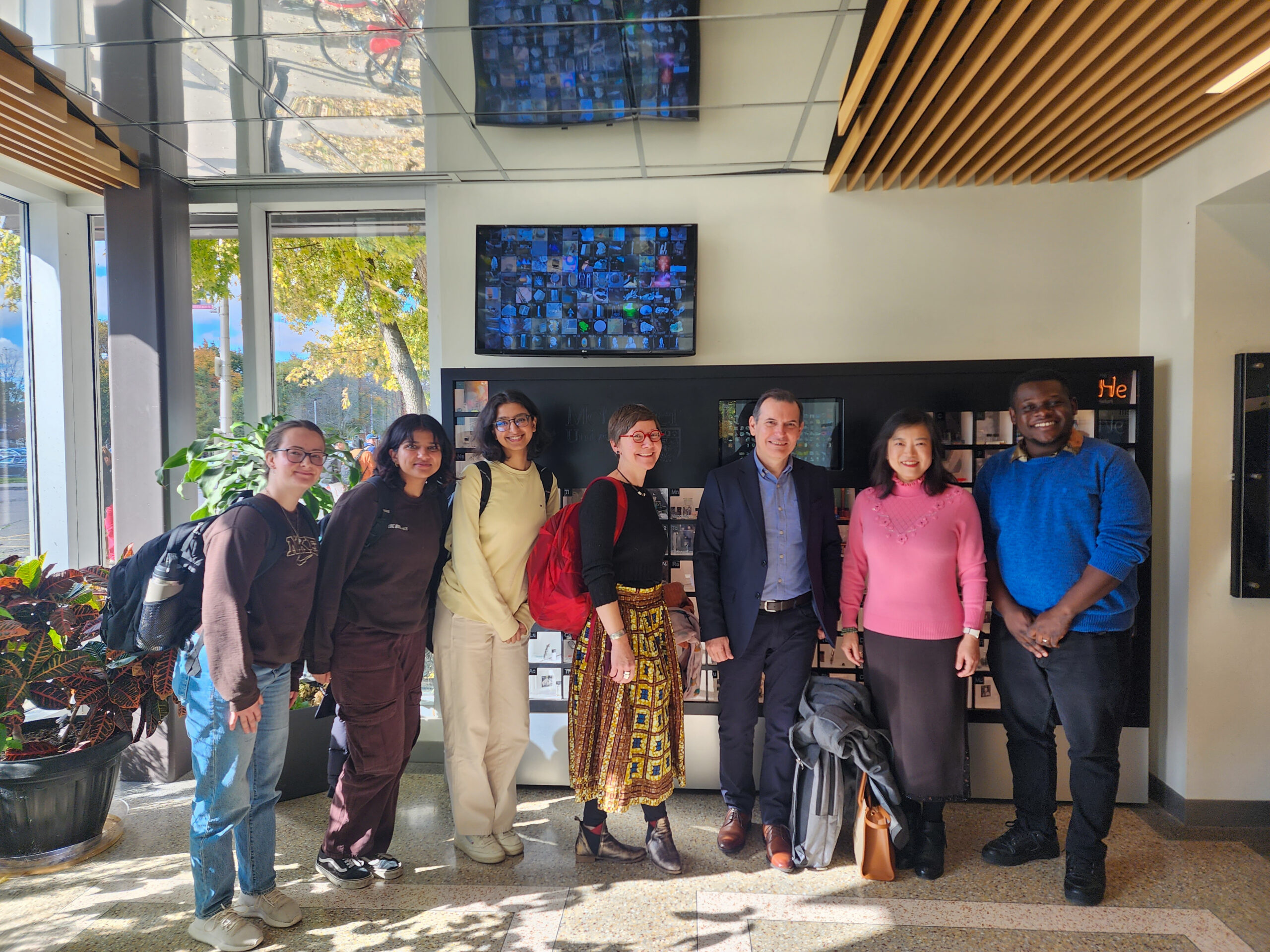Reconcili-ACTION: Understanding Indigenous Health in the GLOCAL Context

Image above is of Dr. Bernice Downey presenting, "Attending to the GLOCAL: An Indigenous ReconciliACTION Perspective" for the March 19th Global Health Seminar. Blog post below is written by Global Health student Radiyyah Karodia.
During the latest presentation for the Global Health Seminar Series, Bernice Downey (kwe/she/her) delved into the historical perspective and background of the Truth and Reconciliation Commission (TRC), the current landscape of Indigenous health and wellbeing in Canada, and the resulting global considerations. Bernice Downey is the inaugural Associate Dean of Indigenous Health for McMaster’s Faculty of Health Sciences and has held several leadership positions championing Indigenous self-determining approaches to health equity. Throughout her presentation, Downey emphasized that what we have learned from working with global partners and communities can have useful applications for the way we do things for Indigenous communities in Canada.
Downey began by contextualizing the TRC, as a document and process with a strong focus on the truth – stories from survivors and their families regarding their traumatic experiences in residential schools. In illuminating this act of cultural genocide, TRC also depicted how the legacy of residential schools has contributed to racism, and health and social disparities for Indigenous folk across Canada. Drawing on her own family experience, Downey described the extent of the intergenerational impact of residential schools and the oppression of Indigenous People, with an impact not only on health but also on kinship ties, and self-esteem. Intergenerational effects can be understood by drawing on Anishinaabe medicine wheel teachings, which looks at how challenges on an individual level can ripple outwards toward the family, and community, and more.
Using several striking examples, Downey further illustrated the disparities between health and well-being between the general Canadian population and Indigenous Peoples. Despite Canada’s ranking highly as 12th on the Human Development Index (HDI), the HDI for Indigenous people registered under the Indian Act consistently trails behind, currently ranking 52nd in the world. This underscores the harsh reality that high levels of well-being are not experienced by all Canadians. These disparities also exist in important social and health conditions, like housing. Due to a number of barriers, inadequate housing conditions remains a significant issue for Indigenous People. In 2021, almost 1 in 6 Indigenous Peoples live in a dwelling in need of major repairs, a rate that is almost 3 times higher than that of the non-Indigenous population. These disparities are also gendered, with 11% of Indigenous women and girls living in crowded dwellings, compared to only 4% of their non-Indigenous counterparts. High costs and limited access to building materials and supplies contribute to the challenges of building and maintaining homes for those living in northern or remote areas. Additionally for Indigenous People on reserve, accessing financing to buy, build, or renovate homes can be difficult as a direct result of the Indian Act, which prevents Indigenous Peoples on reserve from owning their own land or property. These discrepancies highlight the urgent need for a continued focus on improving health outcomes and living conditions for Indigenous communities
Despite these disparities, there is often a lack of knowledge in Canada about the realities that Indigenous Peoples face. As Downey explained, “there is a gap in understanding that often what is happening in northern reserves is worse than what’s happening in some countries around the world. And there is a myth that somebody else in the country is taking care of this”. This is where our global connections can come into play. The knowledge gained from international experiences and global partnerships can be utilized to address challenges in Canada in the context of Indigenous health and wellbeing.
Looking towards the future, Downey emphasized that collective effort to implement the calls to action outlined by TRC is necessary to ensure that actions are long-term, and grounded in Indigenous ways of knowing. Downey also highlighted the importance of looking at all the TRC calls to action, taking note of how they overlap and relate to one another, rather than looking at them in silos. A reconcili-ACTION approach involves recognizing persistent racism that still exists today, focusing on reclamation as opposed to inclusion, advocating for self-determinism for Indigenous Peoples, and integrating Indigenous ways of knowing at community and national levels. The TRC calls to action are not just about acknowledging past injustices, but are also about actively participating in the creation of a future where the calls to action are manifested. Moving beyond passive allyship requires each individual to engage in ongoing education and action, and reflection on their own role in reconciliation.
Reconcili-ACTION is a communal responsibility. As Downey stated, “I can’t possibly tell you everything there is to know about Indigenous Peoples, the TRC and what’s the global connection in one lecture… to be a good ally you have to acknowledge where you’re at and think about what you need to learn and where do I go from here with this introduction”.
Student BlogRelated News
News Listing

November 12, 2024

November 5, 2024

Pollution, Power, and Protest: Unpacking Environmental Racism from Africville to Wet’suwet’en
Student Blog
October 10, 2024
